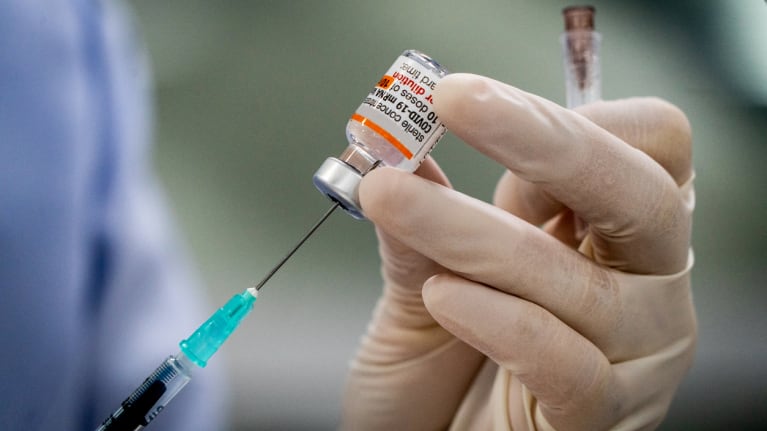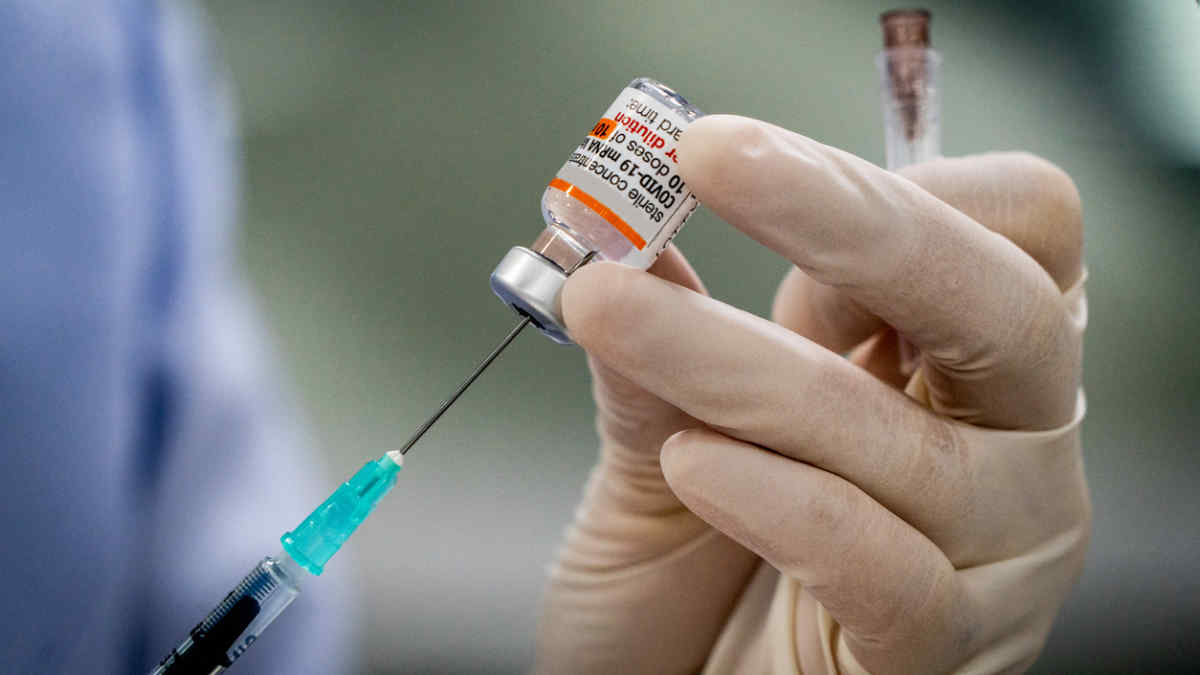

?When COVID-19 vaccines began rolling out in 2021, hopes were high as the public, and employers, quickly got behind the jabs. Major organizations including Google, Kaiser Permanente, Morgan Stanley, United Airlines and Walmart began requiring their employees to get the shot in an effort to reduce the spread of the virus and keep employees healthy, productive and on the job. Job listings even included vaccination requirements, signifying the mainstream acceptance of the public health measure.
COVID-19 cases, though, continued to spike and fall as the virus mutated and different variants emerged. With cases trending down, the COVID-19 public health emergency ended on May 11, as did the national emergency, despite the fact that COVID-19 remains a health threat. And in tandem with the end of the public health emergency, the Biden administration announced that COVID-19 vaccine mandates for federal employees, federal contractors and some health care workers also ended May 11.
“While vaccination remains one of the most important tools in advancing the health and safety of employees and promoting the efficiency of workplaces, we are now in a different phase of our response when these measures are no longer necessary,” the White House said in a statement.
So what does that all mean for employer COVID-19 vaccination requirements, which were among the hottest workplace trends in 2021 and 2022?
“In 2023, we’re in a different place,” said Jeff Levin-Scherz, M.D., population health leader at WTW. “I don’t foresee many employers implementing a COVID vaccine mandate at this point.”
It’s not to say that COVID-19 vaccines are not effective and should not remain an important preventive measure and tool in an employer’s arsenal, he said, but the days of mass COVID-19 vaccine mandates, at least for now, are likely behind us.
“I think most employers that are looking critically at this issue will say, ‘This was a successful approach that has run its course,’ ” Levin-Scherz said.
Indeed, handfuls of employers have recently dropped their COVID-19 inoculation requirements. American Express and Goldman Sachs last fall lifted COVID-19 vaccine requirements at their offices, while the University of Colorado Boulder announced that, as of May 15, it’s ending the COVID-19 vaccine requirement for students, faculty and staff. The mandate, which required all members of the university community to receive the initial vaccine series and one booster, was first implemented for the fall semester of 2021 and updated to include the booster for the spring semester of 2022.
“The university will continue to strongly recommend COVID-19 vaccinations for all in our campus community as a safe, effective tool for minimizing the effects of COVID-19, including serious illness and death. And COVID-19 vaccination will continue to be required for students and staff working in CU Boulder health care facilities in alignment with federal/state guidance,” the university’s associate vice chancellor, health and wellness services, Jessica Doty, wrote in a letter announcing the policy change.
While many employer COVID-19 vaccine mandates appear to be ending, some companies are likely to keep them in place, experts say.
Mary Kay O’Neill, senior health consultant at Mercer, said she’s seeing it both ways. The consulting firm has had conversations with a number of employers who have backed off from earlier vaccine requirement policies, but a few have kept them, particularly for new employees. Certain industries, such as health care, will likely continue to reinforce vaccination. But generally speaking, time will tell how employers will proceed now that the COVID-19 emergencies have ended.
“It is left to be seen the significance of both the end of the U.S. public health emergency from the CDC [U.S. Centers for Disease Control and Prevention] and the announcement from the WHO [World Health Organization] that ended the global emergency, and if and how employers will update their policies,” O’Neill said.
Mercer’s previous research from the fall found that approximately one-third of businesses still required workers to get COVID-19 vaccinations at that time, but updated data hasn’t been collected yet.
Changing Role of Vaccines
In 2021 and 2022, there were “compelling reasons” for employers to mandate COVID-19 vaccines, Levin-Scherz said. “The risk that somebody who was unvaccinated was going to bring COVID into the workplace was substantially higher than the risk that somebody who was vaccinated would bring COVID into the workplace,” he said. “People were getting very sick, and our treatment for COVID wasn’t that great.”
But as the virus has evolved, the vaccines are not as effective at preventing the spread of COVID-19 as public health officials originally predicted. Meanwhile, other factors—from exposure to immunity to better treatments—have also impacted the necessity of mandating vaccination.
“The likelihood that people who got vaccinated twice in 2021 will bring COVID into the workplace is not that much different than the likelihood that somebody who is unvaccinated will,” Levin-Scherz said. Meanwhile, he added, unvaccinated people probably have had COVID already, so they have some degree of immunity. Plus, data shows that vaccines lose their efficacy in preventing COVID after around six or eight months.
“So the clinical justification to mandate that people have COVID vaccines to be allowed in the workplace isn’t very good now, whereas it was very good in the past,” he said.
Other factors—ranging from politicalization and employee backlash to legal challenges and laws prohibiting such requirements—have made employer COVID-19 vaccination requirements less common in recent months, as well.
Some employees were against COVID-19 vaccine mandates and threatened to quit. “Unfortunately, the issue of requiring a vaccine is not seen by many as a public health and safety issue, but more of a personal decision to have the vaccine, so it can be politically difficult to have such a policy,” O’Neill said.
The Biden administration in September 2021 announced plans to require all businesses with 100 or more employees to mandate that their employees get the vaccine or undergo weekly COVID-19 testing, but the Supreme Court blocked that mandate in early 2022.
This year, both Idaho and Utah passed laws to prohibit employers from requiring vaccines.
Encouragement Will Likely Continue
But even if COVID-19 vaccine employer mandates diminish, it’s likely the vaccines—as a part of a larger employee health strategy—won’t be forgotten. In their place will likely be encouragement, incentives and communication about why COVID-19 vaccines are an effective way to prevent the disease or worse outcomes from the disease.
“We are anticipating most employers will treat it like they do the flu vaccine by encouraging people to get one, especially if there is CDC guidance for a booster this fall,” O’Neill said. “They will likely include them as an option in any flu shot clinics.”
Levin-Scherz added that employers should promote the vaccines, as they “dramatically decrease the chances that people will get hospitalized and even more dramatically decrease the chances that people will die.”
A poll of 29 employers conducted in April and May by the National Alliance, a Washington D.C.-based nonprofit purchaser-aligned organization, found that the majority of those employers still said vaccination efforts were important, although they were not asked specifically if they would continue to mandate them. The vast majority of the employers polled (81 percent) said they believe that employers are a trusted source for vaccine information.
National Alliance President and CEO Michael Thompson said with the expiration of the public health emergency, he expects employers are “moving prevention and treatment of COVID-19 more mainstream.”
“That will mean less mandates, special communications and provisions to encourage COVID-19 vaccinations and more focus on the need for employees and their families to keep up on all their preventive care, including vaccinations,” he said.
Tami Simon, corporate consulting leader and senior vice president at Segal, an HR and employee benefits consulting firm, said the important thing to know is that there is “no one-size-fits-all” when it comes to the tack employers can take with vaccination strategies.
“Even if we assume many organizations will drop mandates, it doesn’t mean every organization will,” she said. “There are places where a requirement will remain effective. Others will continue to encourage them. Employers should make the best decision for them, and HR leaders can talk with their general counsel to make sure they are following the right standards and requirements.”

